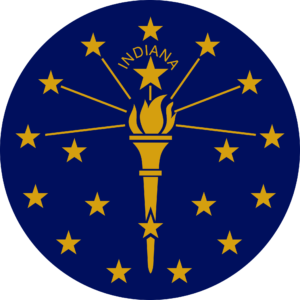Indiana sales tax guide
It’s our honor to welcome you to the guide on sales tax in Indiana (IN). This text, assembled by our experts at 1stopVAT, will help you find answers to questions like what is the sales tax rate in Indiana, which institution is responsible for administering it, and how to register for Indiana tax sales. If you have additional questions or need help with your Indiana sales tax compliance, please contact the 1stopVAT team, and receive speedy assistance.
Indiana sales and use tax in outline
Sales tax is one of the most important duties for companies selling goods or services all over the globe. Each country has a slightly different sales tax or VAT regulation, yet it is always a consumption tax levied on the final customer. All regulative issues of the Indiana sales tax (IN) are administered by the Indiana Department of Revenue (Indiana DOR).
Indiana-based companies and some remote sellers are obliged to include the Indiana state sales tax rate in their final prices. The tax collected from the customer is then filed and submitted to the Indiana DOR at the end of each assigned taxation period. The taxation periods apply to both sales and use tax Indiana. The difference is that the use tax is filed by buyers when they purchase taxable items from tax-exempt organizations.
Registering for sales tax Indiana
To become a registered payer of the sales tax, a company in Indiana has to match three criteria:
- A nexus in the state;
- Revenue from selling taxable items/services in Indiana;
- Customers are paying the tax in Indiana.
Nexus of sales tax for Indiana
A company becomes a sales taxpayer and begins including the Indiana sales tax rate in its prices once it forms a strong bond with the state. Of course, the strongest bond of all is having a physical presence in Indiana, would it be staff, offices, warehouses, or other tangible property in the state. However, remote sellers can form a nexus with the state, too. Here are the types of remote selling nexus in Indiana:
- The sales volume defines an economic nexus in Indiana to customers in the state. In Indiana, sellers are required to apply for a merchant’s certificate if their revenue exceeds USD 100 000 in the current or previous calendar year. Remote sellers also must begin including the Indiana sales tax rates in their prices if they have completed 200 or more separate transactions in the state;
- Marketplace nexus. Marketplaces that facilitate sales to Indiana residents have to comply with the economic nexus requirements and must collect the Indiana state sales tax on behalf of their sellers;
- Inventory in the state. Having your goods stored in warehouses in Indiana, including in the FBA (Fulfilment by Amazon) facilities, can create a nexus in the state;
- Tradeshows. In some cases, participating in tradeshows and exhibitions can create a nexus in the state.
Taxable items and services in Indiana
Before learning how much is the sales tax in Indiana and how it impacts you, it is worthwhile to check if your goods and services are taxable in the state.
The state of Indiana taxes most tangible items, except for groceries and prescription drugs.
However, a seller should check each product individually as the food items have exceptions. For example, bottled water, candy, vending machine foods, and alcohol must include the Indiana sales tax percentage.
Services are not taxable in Indiana, yet with some exceptions. Among them are utilities, softening of water, telecommunications, and short-period rentals.
Keep in mind that some organizations, such as charitable causes or NGOs, can be exempt from sales tax, too.
Getting the permit for Indiana sales tax online
To register as a sales taxpayer in Indiana, you must get a retail merchant’s certificate (RRMC). This certificate costs USD 25 and must be renewed every two years. Both the registration and the renewal of the RRMC can be done via Indiana’s INBiz program online. To complete the registration, you will have to provide your company’s and personal details, as well as the information on the projected sales. INBiz also provides guidance and the most recent information on what’s the sales tax in Indiana.
What is the current sales tax in Indiana?
Unlike in other states where both local and base sales tax rates are implemented, learning how much sales tax in Indiana you should collect is easy. While in states with mixed rates, the total sales tax accumulates based on the location of the customer, the sales tax rate in Indiana is fixed.
Currently, the sales tax rate Indiana -selling companies have to add to their prices is 7 %. If you want to check the changes in sales tax rates Indiana in the future, use our Sales Tax Calculator or contact the 1stopVAT team.
Filing deadlines in Indiana
There are two types of filers in Indiana – early and later filers. Early filers are companies with over USD 1000 of average revenue in the previous year and have to submit their information before the 20th of the month following each taxation period (each month). Later filers – companies that earn less – can do this before the 30th of each month. Sticking to deadlines is important as faulty tax submission can lead to fines.
Need assistance with Indiana sales tax?
We can help!
Dedicated account manager
As our client, you will be assigned to a multilingual account manager who can address all your tax-related inquiries and resolve any issues you may have at any time.
Single point of contact
We serve as single point of contact, simplifying the process and ensuring that your VAT compliance is handled efficiently and effectively within single stop.
Exclusive customer service
We support our clients, ensure fast response time and always go beyond by offering tailored assistance and individual attention.
Certified experts
Our team is combined of more than 30 experts, who can provide wide range of services and are certified members of IVA, AITC and VAT Forum. Currently we have more than 500 clients and knowledge how VAT works in 100 locations.



